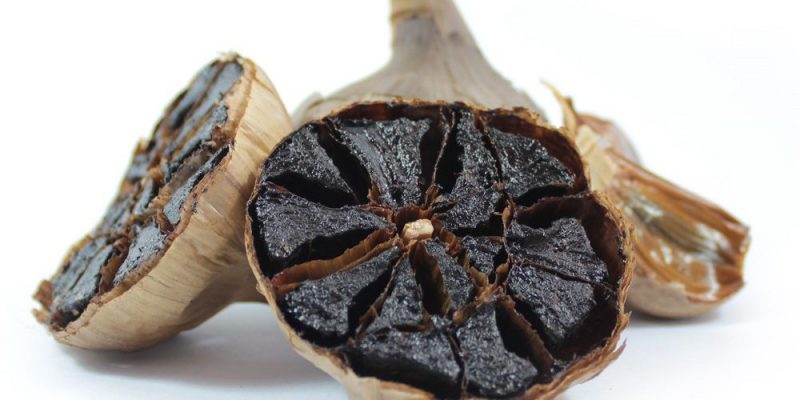We all know that there are many health benefits of regular garlic (including helping prevent hair loss!). So, what about Black Garlic; is it as healthful as its cohort? The short answer is possibly, but those benefits have not been fully tested via clinical trials, so let’s dig into this a bit deeper.
THE DATA
- Animal studies showed that black garlic may lower cholesterol in mice
- Animal studies have shown that black garlic ay reduce oxidative stress in mice
- Laboratory studies using human cells have shown immunomodulating effects, these in vitro studies showed a change biochemistry, resulting in slowed growth of several types of cancer cells
- Animals studies implied that black garlic may help to negate insulin resistance in mice
- Clinical trials have shown aged garlic extract (very similar to black garlic) may lower blood pressure
- Laboratory studies with human cells have shown improvement of natural killer (NK) cell activity
- Animal studies showed that black garlic may lower Thiobarbituric acid reactive substances (TBARS) levels in mice
- Animal and laboratory studies have shown that black garlic may increase SOD (superoxide dismutase) and GSH-Px (Gluthathione peroxidase) in mice
WHAT ARE THE ACTIVE COMPONENTS IN BLACK GARLIC?
ORGANOSULFUR COMPOUNDS (WATER SOLUBLE)
- S-Allyl-Cysteine (SAC)
- S-Allylmercaptocysteine (SAMC)
These two compounds have been shown to be the most important active components in Black Garlic. Based on scientific studies, a minimum of 1 mg SAC has been shown to have the above benefits in lab animals. Our Black Garlic contains 1.5 mg/g SAC. The more that is consumed the more potent the effects.
ORGANOSULFUR COMPOUNDS (LIPID SOLUBLE)
- Diallyl sulfide
- Triallyl sulfide
- Diallyl disulfide
- Diallyl polysulfide
ANTIOXIDANTS
Black Garlic contains at least twice the antioxidants compared to raw garlic.
- Lipid and water soluble Organosulfur compounds
- Polyphenols (allixin)
- Tetrahydro-beta-carbolines
- Selenium
- N-fructosyl glutamate
- N-fructosyl arginine
- Nα (1-deoxy-D-fructos-1-yl)-L-arginine

